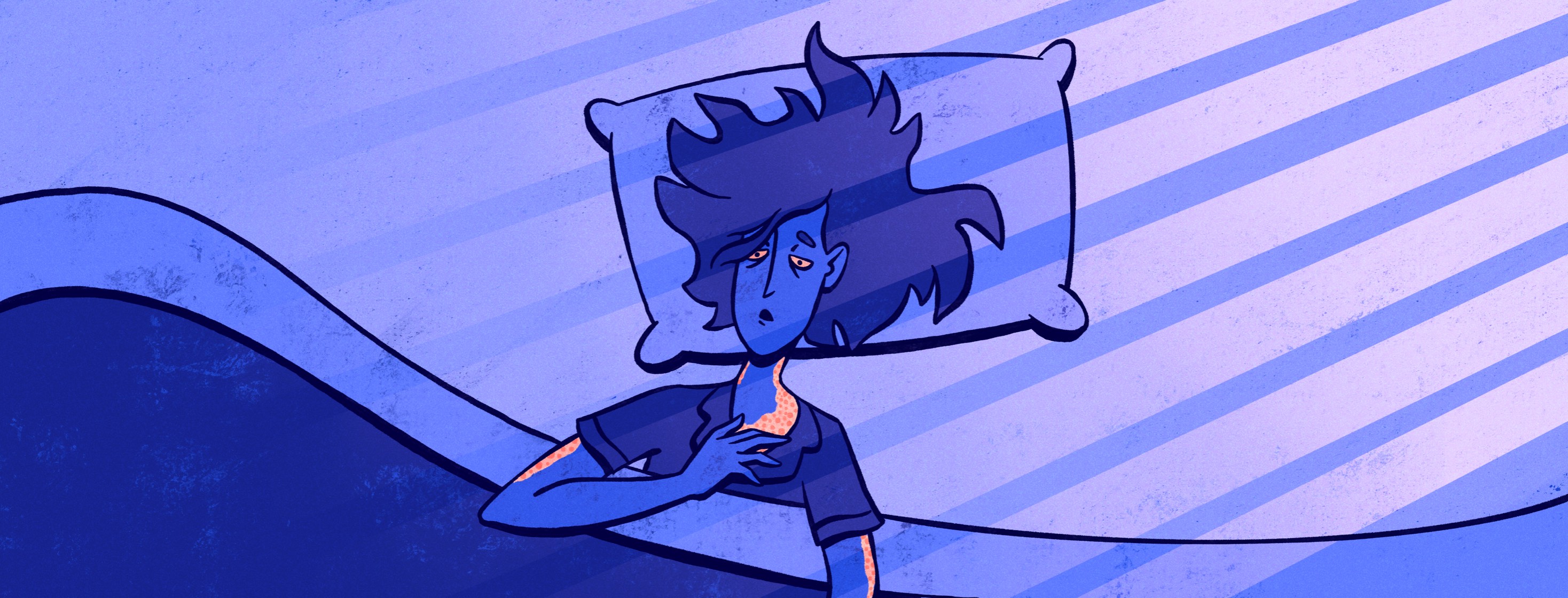Sleep Troubles With Chronic Hives
Sleep is an important part of our lives and helps our body rest and recover. But it is not always easy to get enough sleep.
People with chronic hives, which are hives that persist over time, may have trouble sleeping. This can have a large impact on quality of life. However, there may be steps you can take to help your sleep health.1
What is the effect of chronic hives on sleep?
There are many different types of sleep disorders, but the most common one is called insomnia. Signs of insomnia are:2
- Not getting enough sleep
- Sleeping at the wrong times of the day
- Poor quality of sleep
- Waking up earlier than intended
- Feeling tired during the day
- Feeling irritable
More than 1 in 3 people with chronic hives report trouble sleeping. This is often because chronic hives cause itch and discomfort. These feelings, especially the itch, can make it difficult to fall asleep and stay asleep. For many people, itchiness can increase at night, when we are most likely to be sleeping. Research also shows that sleep troubles are more likely and more severe during hive flare-ups.1,3
The link between hives and sleep troubles goes both ways. Rates of chronic hives are higher in people with insomnia. This may be because poor sleep can impact hives. A lack of sleep can cause stress, which is a common trigger for chronic hives. This can cause a negative cycle which leads to more frequent hive breakouts and trouble sleeping.4
This or That
Do hives keep you up at night?
What are the effects of sleep troubles?
Sleep impacts almost every aspect of our lives. Our bodies use the time during sleep to recover. This helps support healthy brain function and physical health. Adults should get 7 to 8 hours of high-quality sleep every night. But this is not always possible.2
Unfortunately, sleep deprivation can lead to other complications. The impacts of lack of sleep may include:2,5
Increased risk of:
- Heart disease
- High blood pressure
- Obesity
- Stroke
- Lowered ability to fight off germs and infections
- Lower levels of the hormones that help us feel full; this can lead to increased feelings of hunger
- Increased risk for high blood sugar, which can lead to diabetes
A lack of sleep can also impact our mental health. Sleep deprivation may cause:2
- Trouble making decisions
- Mood swings
- Lack of concentration
- Increased likelihood of depression, suicide, and risky behavior
Tips for getting enough sleep
Tips that may help with sleep troubles include:2
- Keep your room dark, cool, and comfortable.
- Try to maintain a consistent sleep schedule. Go to sleep and wake up at the same time every day.
- Avoid nicotine and caffeine during the day.
- Avoid bright screens in the hour before bed. The light from a bright screen can trick your mind into thinking it is time to be awake.
- Try to go outside every day and be physically active.
- Avoid big meals and alcoholic drinks a few hours before bed.
If you are having issues sleeping and it is severely impacting your life, talk to your doctor. They may be able to make recommendations. In serious cases, they may prescribe drugs that can help you sleep.2

Join the conversation